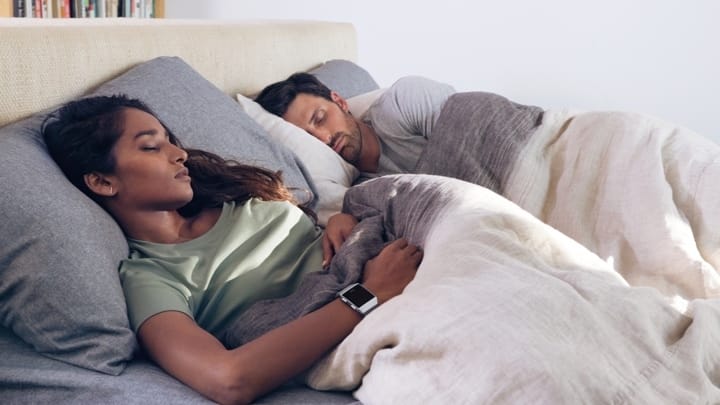- Health Is Wealth
- Posts
- Sleep trackers could have a negative impact
Sleep trackers could have a negative impact
Using sleep trackers, whether it's fitness monitors, smart watches, or devices under your mattress, can have a negative impact on your sleep time.
Speaking to the New York Times about these sleep trackers, Dr. Kelly Baron, medical director of the behavioral sleep medicine program at the University of Utah, explained that sleep tracking devices can be helpful to identify your sleep patterns. But she also noticed that the patients complained about their sleep scores. They showed concern when they hadn't had enough sleep, for example.

Too often inaccurate sleep trackers
Dr. Seema Khosla, medical director of the North Dakota Sleep Center, also said that clinicians are having trouble tracking the devices and apps available that promise to monitoring our sleep. As she saw these devices create a greater awareness of the value of a good night's sleep, she also distrusted the inaccurate data and the increased concern it caused.
A case study done in 2017 found that patients were spending too much time in bed to get perfect scores; which would make insomnia worse. This need for perfect sleep has been called orthosomnia. He also found that wearable devices that rely on motion tracking (most often) to record sleep can often overestimate sleep. Although adding heart rate data and respiratory rate readings to the suit can provide richer bedtime data; which are often also based on estimates, which may not be as reliable.
Fitbit at the heart of research
Fitbit is one of the companies that makes automatic sleep monitoring a staple of almost all of its wearables. Dr. Conor Heneghan, director of research at Fitbit, defended the feature film saying that it gave people a "tool to understand their own sleep health." Conor Heneghan also believes that Fitbit devices can provide reliable estimates and help users understand the factors that can contribute to a poor night's sleep; such as alcohol consumption and exercise.
Almost all of the big names in technology offer sleep tracking, and many are exploring how their devices can be used to detect signs associated with serious sleep disorders such as sleep apnea. Most sleep detectors are not FDA approved because they are considered to be low risk devices. They will therefore need to seek appropriate regulatory approvals to be able to offer this meaningful health monitoring information.
With sleep becoming more and more on the wearable agenda, monitoring data reliability and the value of its offerings will only intensify. So it's incumbent on businesses to integrate this technology into their user-friendly bedtime devices so that users can better understand what they are capable of and what their limitations are.
AB SMART HEALTH REVIEW